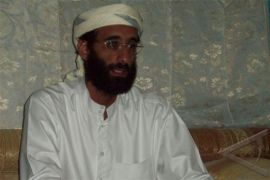"We will not leave until the fall of the butcher," demonstrators chanted in the capital Sanaa, referring to President Ali Abdullah Saleh. "We will not leave this place until the departure of Saleh and his sons."
The slaughter in Sanaa on Friday afternoon was the bloodiest day in weeks of unrest that have shaken the regime of Saleh, a key US ally in the war against Al-Qaeda in the Arabian Peninsula militants.
Witnesses said pro-Saleh "thugs" rained bullets from rooftops around a square at Sanaa University, which for weeks has been the centre of demonstrations calling for the end of Saleh`s 32-year rule.Many of the victims were shot in the head and more than 120 people wounded, medics said, in scenes that shocked the world and drew diplomatic scorn from Western powers and human rights monitors.
The toll climbed overnight as six of the critically wounded died of their injuries, according to medics.
One of those killed was photojournalist Jamal al-Sharaabi who worked for the Yemeni independent weekly Al-Masdar, according to a media watchdog, the Committee to Protect Journalists.
Yemen has ordered two Al-Jazeera television correspondents to leave the country, saying they were working illegally and had acted unprofessionally, Saba state news agency said on Saturday.
Clashes in the main southern city of Aden also left seven injured on Saturday when security forces fired tear gas and bullets to disperse anti-regime protesters in Mualla neighbourhood, witnesses and medics said.
Four of the protesters, who chanted anti-regime slogans, were hit by live bullets while another three were left with breathing problems. After police dispersed their sit-in at a main road in Mualla, the protesters attacked police headquarters there, prompting Yemeni forces to fire live rounds which wounded another three people.
In Sanaa, thousands of people remained camped at the square despite the ill-defined state of emergency, which Saleh announced late Friday as he offered his "regrets" for the killings.
He blamed unidentified gunmen opposed to a Saudi-backed peace initiative and denied police were involved.
On Saturday, Yemen`s ambassador to Lebanon, Faisal Amin Abu Ras, announced his resignation in protest at Friday`s "massacre" in Sanaa.
The editor-in-chief of Saba news agency also said he quit in protest at the killings and would "join the protesters in Al-Taghyeer (Change) square" near Sanaa University, in a statement received by AFP.
The slaughter flew in the face of repeated US appeals for restraint and the respect of human rights in the impoverished country, which is also struggling to contain a southern secessionist movement and a Shiite revolt in the north.
US President Barack Obama strongly condemned the crackdown and called on the key US anti-terror ally to live up to a pledge to allow peaceful protests.
"I strongly condemn the violence that has taken place in Yemen today (Friday) and call on President Saleh to adhere to his public pledge to allow demonstrations to take place peacefully," Obama said.
"Those responsible for today`s violence must be held accountable."
He urged "all sides" to discuss their differences and address the "legitimate concerns of the Yemeni people," although the opposition has called off talks saying Saleh had lost any credibility as a negotiating partner.
The opposition says the president must resign this year but he has refused to leave until his current term expires in 2013. In the meantime he has offered to devolve power to parliament under a new constitution.
UN human rights experts deplored the carnage which they called a breach of international law.
Christof Heyns, the UN special rapporteur on extrajudicial executions, warned that security officers who fail to protect peaceful demonstrators against violence can be held "criminally accountable."
Frank La Rue, the special rapporteur on freedom of opinion and expression, said "such flagrant human rights violations are utterly deplorable," in a joint statement with special rapporteur on torture Juan Mendez.
European Union foreign policy chief Catherine Ashton said she was "dismayed" by the violence and demanded Saleh stand by his own pledge announced on 10 March to protect the right to peaceful protest.
Western diplomats have repeatedly issued similar calls since violence erupted a month ago in Yemen, where the death toll after Friday`s bloodbath has doubled to around 80. (BPY/M016/K004)
Editor: Kunto Wibisono
Copyright © ANTARA 2011


